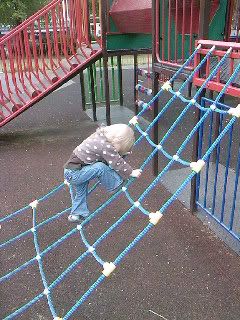Except that I have responded to your question. I did work in the homes of people with special needs, then I moved on to working with "normal" children in classrooms, and now I'm focusing on the experimental underpinnings of behavior analysis (if you really wanted to know, my latest study looked at whether our concept of reinforcement is coherent or not, and my results suggested that the information hypothesis understanding of reinforcement is more plausible than the traditional Skinnerian account). I've presented the names of researchers who have performed interventions or research which are similar to what I've done in ABA (i.e. Dennis Rose, John Church, etc). And yet you keep bleating on about finding some "organisation" that does some "kind" of ABA.floppit wrote:I care what other readers think. I care particularly when a person is very plausible in terms of their manner of delivery, quotes, subquotes etc but less so in terms of substance and I care deeply about something which gives internet an often undeservedly bad name.
You claim this:And yet seem unable to offer a simple answer to the question 'What do/or did you do?'. There's a member of this forum who is a private tutor, I'd lay a considerable bet that if asked the same question the answer would roll off his fingertips without hesitation and without the need to say no more was required than the answer 'teach' or 'educate'. Ask me about any job I've do and I can describe with fluent ease to anyone what process it contains, and in any detail required. I could find easily similar current jobs online, people still doing the same things that represent their actions over the internet.I've already earned my qualifications in ABA. I've done work in the area (both in homes and schools, with developmentally disabled people and with "normal" people and with animals), I've met people running these programmes because they are my colleagues, I've been to conferences and presented at conferences, I've read the research and published my own research.
If offering the it's international organisations web page it would be second nature to underline which special interest had been my own, which BTW I have already done - not a problem, nor is it a problem to discuss the realities of that interest as I experienced them.
It is implausible in the extreme to me that, the person you describe yourself as online, would find such a request so difficult to understand and even harder to respond to.
Out of interest, what "kinds" of ABA do you think there are? This is the problem with your question, there aren't any "kinds" of ABA to choose from.
..You simply wanted me to list what kinds of problems I've worked with? From the "special interests" page, I've worked with: animals, autism, little bit of research into gambling (looking at self-control), feeding disorders (with particular interest in selective eating disorder), and a little bit of verbal behavior - and not on the list, I've done experimental research into classical conditioning, self-control, and some signal detection work.floppit wrote:I suppose, now you are aware of the special interests pages above you can surf through and find something, if so, and if that matches all that's been said so far I will be the very first to concede some level of plausibility - it, at this stage, would not be enough for me to see you as what you claim to be to the extent I would be guided by your advice though.
But obviously the "kind" of ABA didn't change with each problem. The approach of ABA was the same with each problem, just the tools and techniques I used differed.
I don't know who the fuck Walter Mitty is, but if my extensive knowledge and interest in a pretty obscure field isn't evidence enough of my experience in the area, then I can't provide any other form of proof (since I don't want to put my name out on a public forum). As my best attempt to prove it, I'm not sure if this information is on the internet or not, but after the 2009 NZABA conference in Auckland, Nathalie Boutros won the award for the most entertaining lecture of the conference. Not that any of this even matters - for argument's sake, let's pretend I'm a big fat phoney who tells girls on the internet that I'm a behavior analyst in order to get them in the sack (because it's such a sexy profession). What the fuck does that have to do with whether my claims are accurate or not?floppit wrote:Of all the people I've met on line this is the first time I genuinely feel I'm talking to a Walter Mitty. Yes - I do bloody care, enough to risk being wrong openly.
I've backed up my opinions with academic references, with the textbook on the subject, as well as various citations to numerous authors. You have "countered" my claims by pointing out that you've been trained in the Lovaas method. I point out (quite accurately, according to any information on this subject), that the Lovaas method cannot and should not be confused with ABA itself. It is a part of ABA, but not an alternative to it, and obviously not a paradigm or school of ABA (i.e. it is not one of the many "kinds" of ABA).
